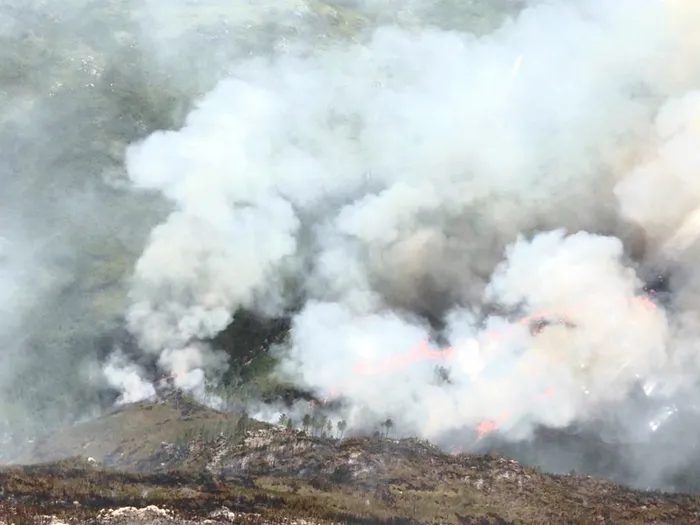Western Cape firefighting takes financial toll

THE Franschhoek area continues to burn. Dirk Linde THE Franschhoek area continues to burn. Dirk Linde
Cape Town - Firefighters have battled more than 12000 fires this fire season and officials warn that costs have been exorbitant.
Parliament’s standing committee on local government was briefed this week on the fire incidents and its financial implications in the province.
Of the four major fires recorded from October damages to infrastructure alone have been estimated to run to R204million from fires in the Garden Route, West Coast, Overberg and Mossel Bay municipalities.
From April, the provincial government has spent around R41m in firefighting efforts.
Officials said the causes of the fire have been determined to be human negligence.
Around 12325 fires were recorded across 11 regions in the province, with the City of Cape Town marking the highest figures at 9000 and the Cape Winelands coming in second at 1171.
Yesterday, 170 firefighters, alongside ground crew, 14 vehicles and two helicopters were still trying to contain a fire that broke out at the Franschhoek Mountains earlier this week.
Cape Winelands District Municipality’s Jo-Anne Otto said progress had been made in containing the blaze.
“The night-time weather, which was very warm, caused the fire to spread into the dense vegetation around the Assegaaibos area. The dense vegetation caused some difficulty, however the teams made good headway.”
Western Cape provincial disaster management centre’s Colin Deiner said they were starting to see a new pattern to fires that were bigger and taking longer to contain.
“We are getting a lot more fires that are of a much bigger scale than what we used to deal with and that is what we are seeing worldwide,” he said.
“We have to realise a very high priority is the issue around climate change; the impact of wildfires is massive.
“We have large forests that are important for releasing oxygen, unfortunately when they start burning, that balance gets thrown off.
“The drought has also impacted on the fires.You find that it is drier and these forests are not getting rain, we are not seeing the regrowth and that is where the major impact is.”
“It is also costs a lot more money for wildfire response; aerial support is very expensive. An aircraft that carries 3000 litres of water is in the region of R70000 an hour and the costs are huge for us to respond.
“Fighting fires for 21 days, you are going into R10m and it is not only the aerial support costs, but ground support teams, managing around 700-800 staff and they need to be fed and moved around.
“The urban wildfire interface is when fires get to where people live and we are seeing a lot more people living on that edge and that is due to informal settlements and those who want to live in the wildfire risk areas.”
Deiner said the other concern they had was the future working relationship with the Working on Fire programme.
“The Working on Fire programme under the current implementing agent will come to an end in 2021 and will be handed back to the government. There is quite a lot of uncertainty in terms of what will happen to those resources; it is something we have raised so that we not left stranded when this comes to pass,” he said.
“The decision as we are aware is that when it comes to an end, the programme has to go to the Department of Environmental Affairs.”
Head of Department for Local Government Graham Paulse said they had petitioned provincial treasury for further funding for the current financial year and received R5m over three years to review and strengthen their strategies and approach to combating fires.